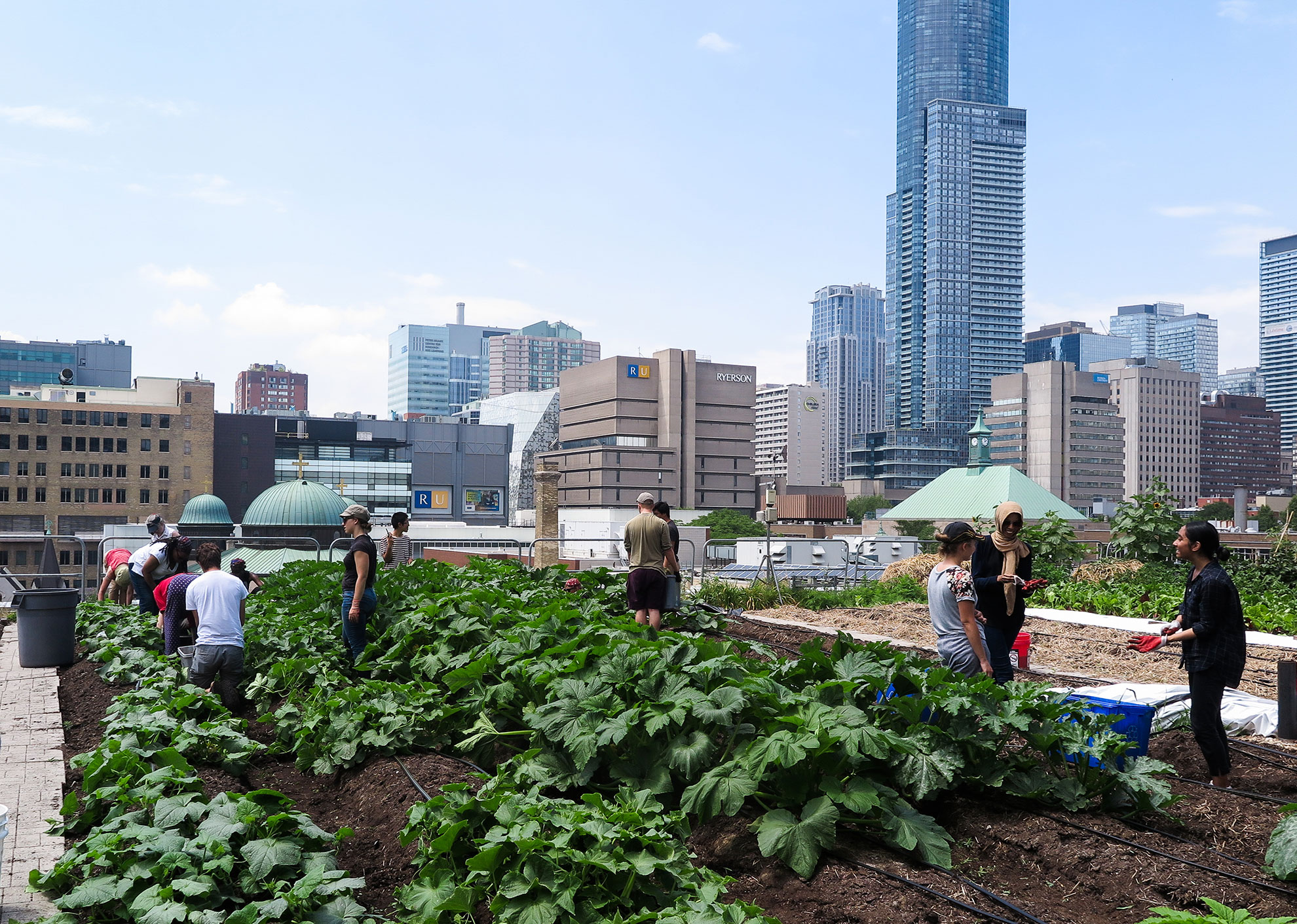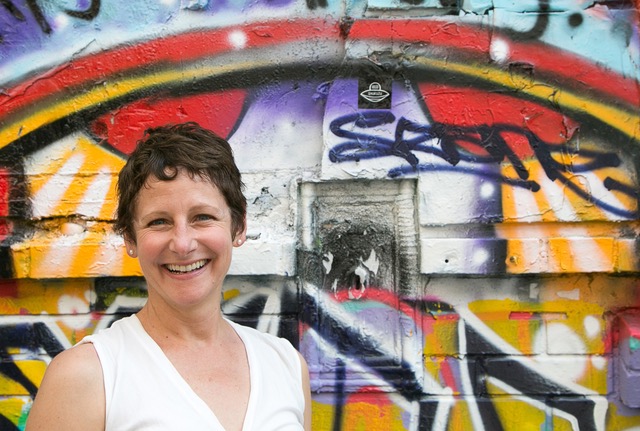Why Urban Agriculture is Fundamental for a More Sustainable Future

June 30, 2020
Lauren Baker, Instructor and Food System Consultant, explores the food system before, during, and after the pandemic and the wider implications for us all.
The COVID-19 pandemic has highlighted issues around food security. As Director of Programs for the Global Alliance for the Future of Food, Co-Founder of a Toronto urban farm, and a Food Security and Urban Agriculture Instructor, Lauren Baker deeply understands this.
The pandemic has focused individual and government attention on the food system, revealing areas of supply chain fragility and highlighting the critical importance of food workers, including migrant labour. When we emerge from the pandemic, Lauren believes urban agriculture will continue to be fundamental to making sure people have safe and reliable access to food. Importantly, it can also move us forward as we work together to slow climate change and enhance sustainability, employment, equity, justice, and health.
“There’s real interest from every corner, from business to grassroots organizations,” Lauren says of urban agriculture. “Cities like Montreal are mobilizing to support urban gardeners, strengthen urban agriculture practices, and provide space. The city of Victoria in B.C. has asked municipal garden workers in the Parks Department to grow food in their parks. It’s pretty amazing.”
Lauren’s history with urban agriculture began when as an environmental studies graduate she toured FoodShare’s Field to Table warehouse on Toronto’s Eastern Avenue. She remembers climbing a rickety ladder to the roof, where a friend had built a greenhouse, and looking out across acres and acres of empty rooftops. “Wow, there’s so much potential here,” she thought. “We could really grow a lot of food on all these roofs.”
Soon, she and others joined forces to co-found an urban farm, Annex Organics. They grew tomatoes and peppers on the roof and sprouts in the basement. “It was a very urban environment, with the highway basically right behind us, and all of these really creative community food projects happening at the warehouse,” she recalls. “It was my entry point into urban agriculture.”
Over the next two decades, Lauren’s career branched out into many areas related to food systems – her experience ranges from researching agricultural biodiversity in Mexico to consulting on food systems policy development in Canada and around the world – but, throughout, she has remained connected to urban agriculture.
Today, she teaches in two of The Chang School’s certificate programs: Food Security and the newly-launched Urban Agriculture. She says the Certificate in Urban Agriculture has been positioned to connect into many careers, from growing food outside and in greenhouses to professional roles in planning and policy, green infrastructure, and community development.

Lauren Baker, Food Security and Urban Agriculture Instructor
“There are a lot of opportunities,” she emphasizes, pointing to innovative new collaborations across professions. “Community agencies now have great urban agriculture projects led by staff as a way to address social isolation and provide creative programming for their clients.”
Other examples of these opportunities include horticultural therapy in hospitals as well as pre-pandemic projects like the Black Creek Community Farm, which supplies fresh fruits and vegetables to the community and brings people together to cook and learn. Lauren believes these may serve as models for future initiatives. She is also watching with interest as new urban farms emerge on underused hydro land in neighbourhoods like Malvern and Flemingdon Park.
“We need to think about our cities differently now. We need to think about how they’re designed and structured through a health lens and through the lens of environmental sustainability and equity,” she says. “Urban agriculture is an entry point to all of that and a tool, in a sense, to link all of those priorities.”
Post-pandemic, Lauren predicts people will move towards thinking about food as public infrastructure, in the same way we think about transportation and electricity. That will lead to even more demand for urban agriculture specialists who can provide strategic, systems-level proposals to help address our local and global challenges.
“We need to think about our cities differently now. We need to think about how they’re designed and structured through a health lens and through the lens of environmental sustainability and equity,” she says. “Urban agriculture is an entry point to all of that and a tool, in a sense, to link all of those priorities.”
Interested in learning more about The Chang School of Continuing Education’s new Certificate in Urban Agriculture and hearing more from Lauren Baker? Register for the Urban Agriculture webinar on July 29, 2020 from 1:00 p.m.-1:45 p.m. EST.
ABOUT THE AUTHOR
Alison MacAlpine is a Toronto-based writer and enthusiastic lifelong learner who has benefited from many classes at The Chang School of Continuing Education over her 25-year career.
